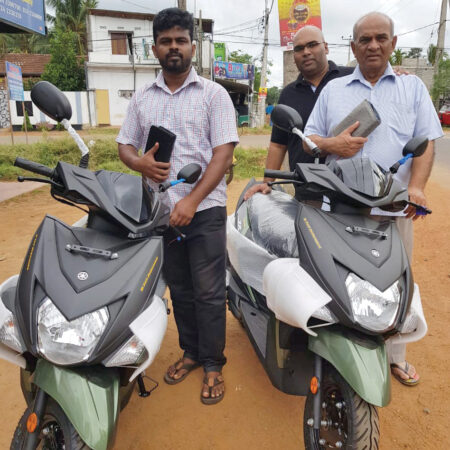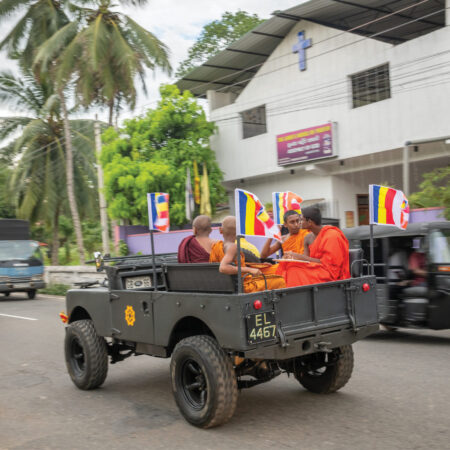It was pitch-dark when our rented van turned down a rutted dirt road and pulled up to a tall metal gate. After we stepped out of the van, a smiling young man opened a door in the gate and invited us inside the church. Our Sri Lankan friend urged us to hurry so neighbors wouldn’t notice that foreigners were visiting. As we entered the brightly painted church and slipped off our shoes, the young man arranged plastic chairs into a circle and Pastor Kasun offered a warm greeting.
Although the pastor is from the small island nation’s capital, he now serves in a fundamentalist Muslim village on Sri Lanka’s eastern coast. The village, where the pastor was sent as a church planter several years ago, is less than an hour away from the home mosque of the mastermind behind the Zion Church bombing in Batticaloa in 2019.
During Pastor Kasun’s few years in the village, the church he planted has grown to about 100 people. And as a result, he has received many death threats. “Right there,” he said, pointing toward the gate through which we had just passed, “I thought I was going to die.” The pastor then described how an angry man had accosted him with a gun outside the church. He said that as the man yelled and waved the gun at him, he closed his eyes expecting any moment to be killed. But nothing happened, and when he opened his eyes a few moments later, the man was gone.
As our conversation continued, Pastor Kasun pointed at a diagram taped to the wall. “In this neighborhood,” he said, “we have to work in a special way.” While the congregation that meets in the church building comprises about 100 people, at least 20 small house-church groups also meet throughout the neighborhood Pastor Kasun oversees. They have to be careful, he explained, because of the villagers’ deep animosity toward those who leave Islam. Christian converts routinely suffer family rejection and attacks.
When we asked the young man who had welcomed us how he had come to faith in Christ, he said he was led to Christ through the witness of Pastor Kasun. And to our surprise, we learned that the young man is not a former Muslim but rather a convert from Hinduism, illustrating the cultural diversity of the region.
Although Sri Lanka is mainly Buddhist, the eastern part of the country is dotted with Hindu and Muslim communities. The Hindu villages are easily identified by their colorful temples, while the commerce-driven Muslim villages are marked by women in headscarves shopping at packed market stalls.



